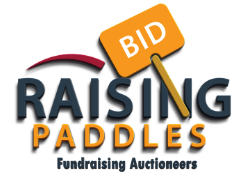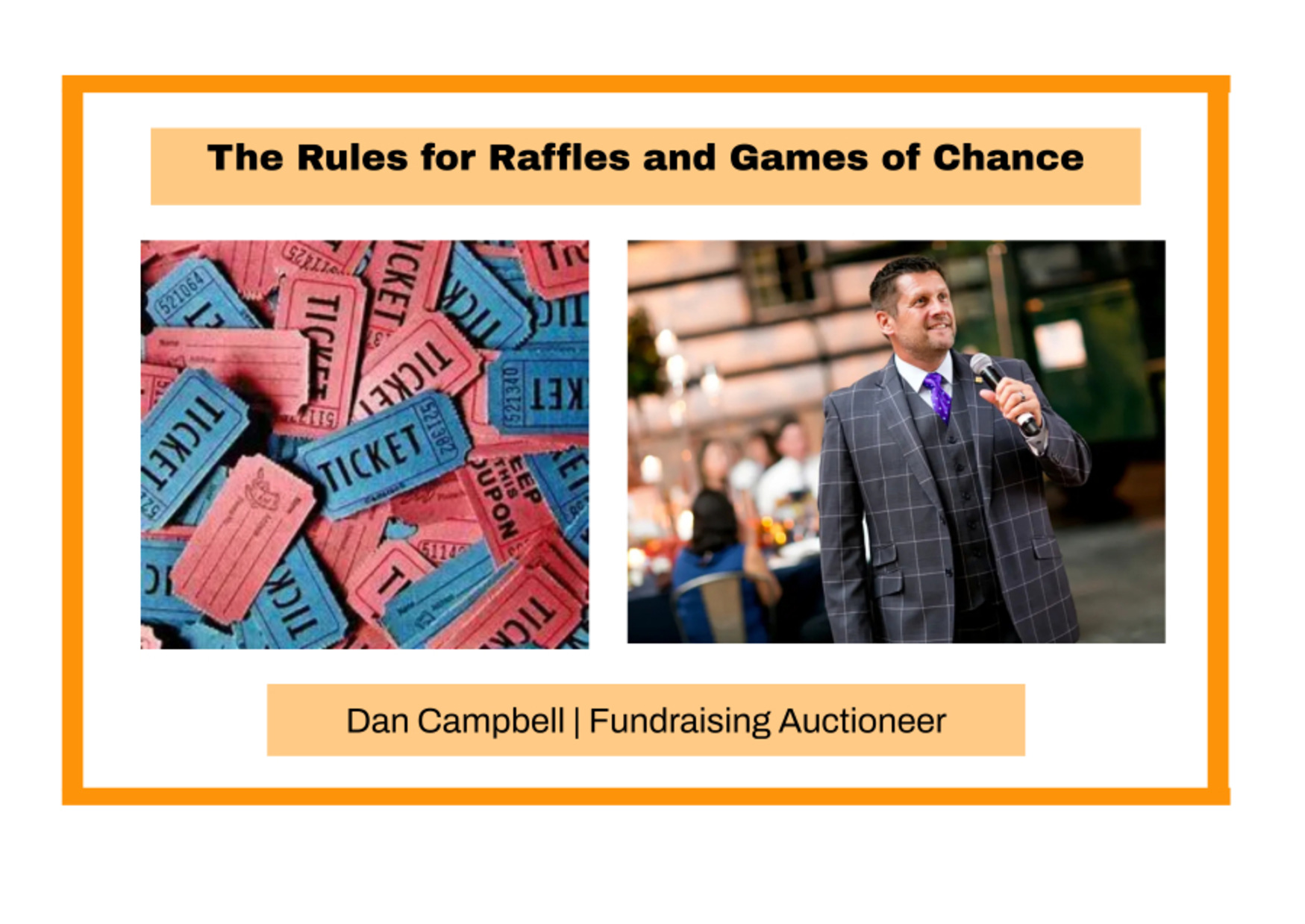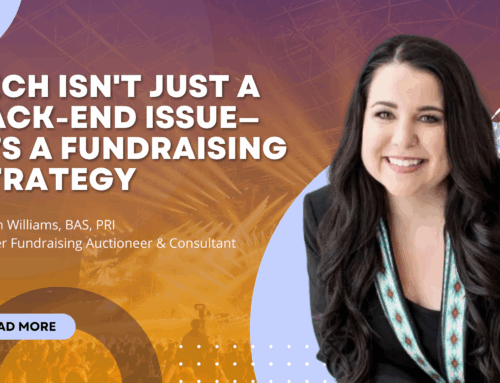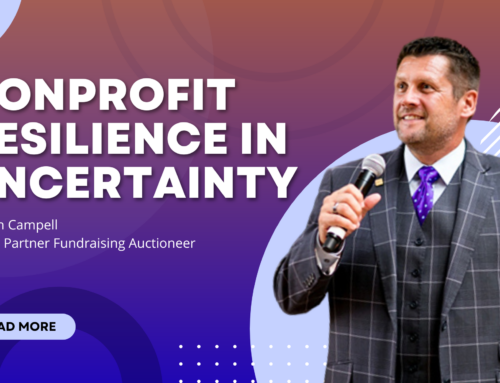By: Dan Campbell
Do you know the rules for Raffles and Games of Chance?
Many nonprofits use games of chance and auctions as fundraising vehicles – without realizing that “legalized games of chance” are regulated activities, and indeed illegal in many states. So that poker night or silent auction that created such a buzz…make sure that the buzz is not the vibration of your cell phone letting you know that your nonprofit is being cited for criminal penalties. Even an auction that is raising money for a charitable cause, can result in unintended consequences for donors and charitable nonprofits alike, unless you know and follow the rules. From fantasy leagues to casino nights, nonprofits and games of chance are a misunderstood minefield.
Know the rules
Your state may, or may not, permit charitable nonprofits to conduct raffles, Bingo, auctions, and other games of chance. If it does, it is likely your nonprofit will need to apply for a license from the state beforehand. The IRS regulates games of chance too, as well as the taxable income that is earned by victorious game-players. Here are some of the issues that games of chance raise for charitable nonprofits:
- Income from games of chance may be considered unrelated business income and therefore the charitable nonprofit may owe tax on the income, and winners may owe tax that the nonprofit is required to withhold.
- The IRS has special rules for bingo.
- Read the IRS notice about reporting requirements and income withholding for raffle prizes
- In some states, proceeds from games of chance have to be kept in a special bank account (e.g., Pennsylvania).
- Games of chance might trigger the requirement to conduct criminal background checks on the CEO or other staff of the nonprofit that is hosting the games.
- State or federal law may require the nonprofit to maintain special records and file certain reports about the games/winners.
- The nonprofit may be subject to gaming excise taxes (described in IRS Publication 3079).
- A nonprofit hosting an event such as a charity casino night, where alcohol is served, may need a separate alcohol license.
- How the nonprofit uses net proceeds from games of chance may be limited in some way. For example, in North Carolina the law states: “None of the net proceeds of the raffle may be used to pay any person to conduct the raffle, or to rent a building where the tickets are received or sold or the drawing is conducted.”
What can donors deduct?
Surprise: often, nothing! Donors who are successful bidders at an auction, or winners at a game of chance, often think that the money they spent in pursuit of their winnings is deductible just because the event is hosted by a charitable nonprofit, or the earnings are advertised as supporting a charitable cause. In fact, in many cases, money spent on games of chance is not deductible.
- Auction donors may be surprised to learn that their “contributions” are not deductible. The reason is that in an auction, the winning bid is a purchase of goods or services, so the winner is receiving something in return for their payment. However, if the winning bid is more than the fair market value of the auction item – and if the donor can show they knew they were bidding more than the fair market value – then the excess of the purchase price over the fair market value is deductible. It’s good practice to publish the fair market value of auction items as part of the auction catalogue, so that donors can choose to bid more and demonstrate that they knew they were doing so.
- In the case of other types of games of chance like raffles, the person who plays the game is expecting (hoping) to win something in return, so the money exchanged is considered just like a purchase or sale of goods, rather than a voluntary gift to the charitable nonprofit with no expectation of receiving anything tangible in return.
Related Insights & Analysis
- Games of Chance as Nonprofit Fundraisers (January 2022)
- Your state association of nonprofits can provide guidance on what is permitted in your state.
Additional Resources
- Tax-Exempt Organizations and Gaming (IRS Publication 3079)
- Exempt organizations and raffle prizes (IRS)
- IRS Phone Forum transcript: Federal tax and and information return responsibilities for tax-exempt organizations that conduct gaming (IRS)
- Special IRS Gambling Rules for Nonprofits (Nolo) permitted in your state.






